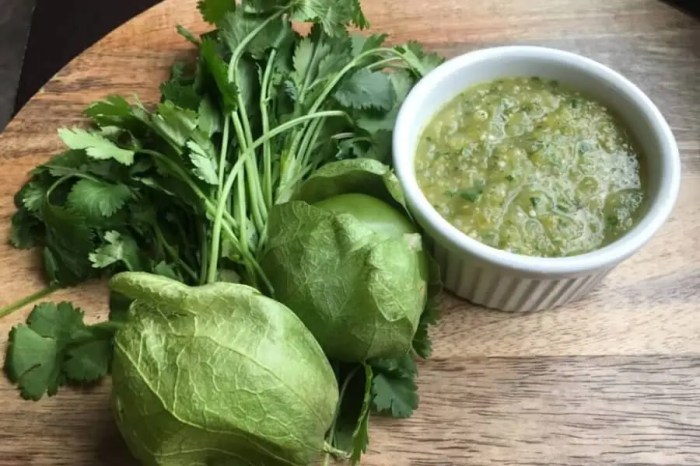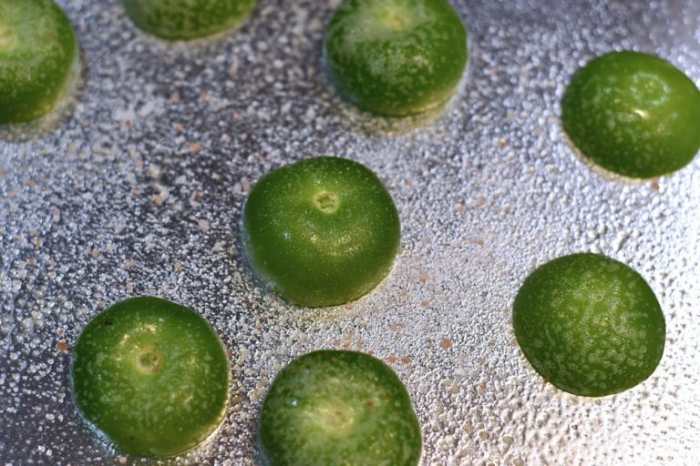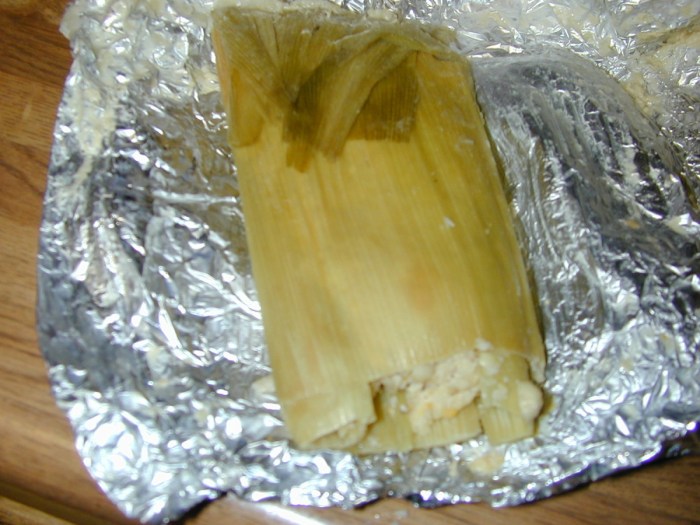Green Tamale Sauce: A Culinary Exploration

Source: cukebook.org
Tamale sauce recipe green – Green tamale sauce, a vibrant and flavorful condiment, holds a significant place in Mexican cuisine. Its origins are deeply rooted in the diverse culinary traditions of Mexico, with variations emerging across different regions, reflecting the unique availability of ingredients and local preferences. This exploration delves into the history, key ingredients, regional variations, preparation techniques, and serving suggestions of this beloved sauce.
Introduction to Green Tamale Sauce
Green tamale sauce, also known as salsa verde, boasts a rich history interwoven with the evolution of Mexican cooking. While pinpointing a single origin is difficult, its development is intrinsically linked to the cultivation and use of various chili peppers across Mexico. Early versions likely involved simple combinations of roasted chiles, herbs, and spices, evolving over centuries to encompass the vast array of recipes we see today.
Key ingredients commonly include tomatillos, various types of chiles (such as serrano, jalapeño, or poblano), cilantro, onions, garlic, and spices like cumin and oregano. The cultural significance varies regionally; in some areas, it’s an everyday staple, while in others, it’s reserved for special occasions or traditional dishes.
Recipe Variations: Exploring Different Green Tamale Sauces, Tamale sauce recipe green
The versatility of green tamale sauce is reflected in its numerous variations. The choice of chiles significantly impacts the heat level, while the inclusion of additional ingredients adds depth and complexity. Below is a comparison of three distinct recipes:
| Ingredients | Preparation Method | Flavor Profile | Regional Origin |
|---|---|---|---|
| Tomatillos, serrano chiles, cilantro, onion, garlic, cumin | Roasted tomatillos and chiles, blended with remaining ingredients | Spicy, herbaceous, slightly smoky | Central Mexico |
| Tomatillos, jalapeño chiles, cilantro, onion, garlic, oregano | Simmered tomatillos and chiles, then blended with other ingredients | Mildly spicy, fresh, slightly tangy | Northern Mexico |
| Tomatillos, poblano chiles, cilantro, onion, garlic, cumin, epazote | Roasted tomatillos and poblanos, blended with remaining ingredients | Mild, earthy, slightly bitter (from epazote) | Southern Mexico |
Using different chile types allows for a wide range of heat levels. Poblano chiles offer a mild heat, while serrano chiles are significantly hotter. Jalapeños fall somewhere in between. Adjusting the quantity of chiles directly affects the spiciness of the final sauce.
A mild green tamale sauce suitable for children can be made by using poblano chiles exclusively, reducing the quantity, and omitting other spicy elements. The addition of a touch of sweetness, like a teaspoon of sugar or a pinch of agave nectar, can further balance the flavor profile.
Ingredient Focus: Herbs and Spices
The aromatic herbs and spices are crucial to the distinct flavor of green tamale sauce. Cilantro, a dominant herb, contributes a bright, fresh, and slightly citrusy note. Other herbs, like oregano or epazote (depending on the regional variation), add layers of complexity. Key spices, such as cumin, provide warmth and earthiness, while other spices can be added to enhance the overall taste.
- Cilantro Substitute: Parsley offers a milder, less distinct flavor. However, it won’t replicate the unique character of cilantro.
- Tomatillo Substitute: Roma tomatoes can be used, but they’ll produce a slightly different flavor profile, resulting in a less tart and tangy sauce.
- Chile Substitute: Substitute milder chiles for spicier ones to adjust the heat level. For example, poblanos can replace jalapeños for a milder sauce.
Preparation Techniques and Methods
Green tamale sauce can be prepared using a blender or a molcajete (mortar and pestle). Both methods yield distinct textures and flavors.
A vibrant green tamale sauce offers a refreshing counterpoint to richer dishes. For those who prefer a bolder flavor profile, consider incorporating elements from a spicy hot wing sauce recipe – perhaps a touch of chili powder or a dash of your favorite hot sauce – to add a surprising kick to your green tamale sauce.
Experimenting with spice levels allows for a truly personalized culinary experience.
Blender Method:
- Roast tomatillos and chiles until softened and slightly charred.
- Place roasted ingredients, along with cilantro, onion, garlic, and spices, in a blender.
- Blend until smooth or to your desired consistency, adding water or broth as needed.
Molcajete Method:
- Roast tomatillos and chiles.
- Peel and roughly chop the roasted ingredients.
- Grind the ingredients in a molcajete, gradually adding cilantro, onion, garlic, and spices. The resulting sauce will have a coarser texture.
The blender method creates a smoother, more homogenous sauce, while the molcajete method results in a chunkier, more rustic texture with a more pronounced flavor from the ingredients’ individual components.
Serving Suggestions and Pairings

Source: 24bite.com
Green tamale sauce is a versatile condiment that complements a wide array of dishes.
- Tamales (naturally!)
- Tacos
- Enchiladas
- Eggs
- Grilled meats
- Roasted vegetables
The ideal consistency varies depending on the application. For dipping, a slightly thicker sauce is preferred, while a thinner consistency is better for topping dishes. Leftover sauce should be stored in an airtight container in the refrigerator for up to a week. Freezing is also an option for longer storage.
Visual Representation: Describing the Ideal Green Tamale Sauce

Source: sndimg.com
A well-made green tamale sauce should have a vibrant, deep green color, stemming from the tomatillos and chiles. The texture should be consistent with the chosen preparation method; smooth for blender-made sauce, and chunkier for molcajete-made sauce. Visible flecks of cilantro and perhaps some chile seeds add visual appeal. A dull color or separation of ingredients might indicate a lack of freshness or improper preparation.
Question & Answer Hub: Tamale Sauce Recipe Green
Can I make green tamale sauce ahead of time?
Yes, green tamale sauce can be made ahead of time. Store it in an airtight container in the refrigerator for up to 5 days.
What if I don’t have a blender or molcajete?
You can finely chop the ingredients and use a food processor instead of a blender or molcajete. The texture might be slightly different.
What are some good substitutes for cilantro?
Parsley or a combination of parsley and mint can be used as substitutes for cilantro, though the flavor will differ.
How can I adjust the spice level?
Adjust the spice level by adding more or less chile peppers, depending on your preference. Start with less and gradually add more until you reach your desired level of heat.
